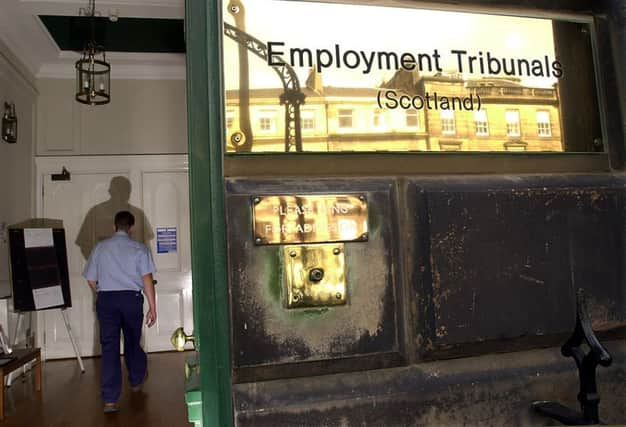Change is afoot in tribunal fee structure


Earlier this month the Scottish Government announced its intention to abolish employment tribunal fees in Scotland, a development which follows a number of unsuccessful legal challenges since the UK-wide introduction of fees by the previous coalition Government in July 2013. This included last month’s failed appeal by the trade union Unison, with the Court of Appeal ruling that there was insufficient evidence to suggest the fall in the number of employment claims was entirely down to potential claimants’ ability to pay fees.
Despite this ruling, there’s no denying the UK employment tribunal landscape has significantly changed over the past two years with the number of claims in sharp decline. While there was a 57 per cent drop between April 2014 and March 2015 compared to the previous year, the number of claims brought in the year to March 2013 – before the introduction of fees – was three times higher than it is now.
Advertisement
Hide AdAdvertisement
Hide AdPrior to 2013, any individual who wished to raise a claim of unfair dismissal or discrimination in the UK could have done so free of charge. However, following the imposition of fees in 2013, a claimant must now pay £250 to lodge a claim and an additional fee of up to £950 before their case goes to a full hearing.
Along with the trade unions, other groups and organisations, including Citizen’s Advice Scotland, have argued that the imposition of fees effectively raises the barrier to accessing justice and is unfair, especially to lower-paid workers.
The Scottish Government agrees. Launching its Programme for Government document earlier this month, it stated: “We will abolish fees for employment tribunals when we are clear on how the transfer of powers and responsibilities will work.” The Holyrood Government has also promised to consult on “the shape of services that can best support people’s access to employment justice” as part of the transfer of the powers for employment tribunals in Scotland which have been outlined in the Smith Commission proposals.
There is no fixed timetable as to when these changes will be introduced by the Scottish Government but they will likely be accompanied by additional amendments to the rules on the jurisdiction of employment tribunals north of the Border. This may well include tightening up legislation on where an employee may competently bring a claim as failure to address this point could result in a flood of “forum shopping” from employees based in England and Wales who will lodge their claim in Scotland as it won’t be subject to fees.
There are also concerns, although somewhat overstated in my view, that UK-wide or international businesses may divert some of their investment south of the Border or overseas should the abolition of tribunal fees create a higher level of claims against companies in Scotland.
While the introduction of tribunal fees led many employers to adopt a wait-and-see approach on whether a claimant would pay to lodge a claim, I expect the removal of fees will lead to a change in tack and many will seek to engage in settlement discussions at an earlier stage in proceedings.
Whatever the outcome of this policy, the message to employers is that prevention is better than cure. I would advise businesses to adopt good HR practices to minimise the likelihood of being faced with a tribunal action and to be in a strong position should they ever have to defend an action.
Whether the abolition of employment tribunal charges here will result in a flood of UK claims lodged in Scotland is currently unclear. However, if and when this legislation is introduced, I suspect the Scottish Government will be looking to also bolster other less costly routes for employee/employer negotiation, a key route being the now compulsory Acas early conciliation regime which seeks to resolve employment tribunal claims before they are raised.
Advertisement
Hide AdAdvertisement
Hide AdRegardless of what happens in Scotland, the overall future of employment tribunal fees throughout the rest of the UK remains uncertain as trade unions continue to challenge their legality through the higher courts. Unison now intends to raise a further appeal through the Supreme Court which should have a significant bearing on the legitimacy of charging fees going forward.
Westminster has also begun a review of the employment tribunal fee regime. Whether this will lead to a U-turn on the policy of charging fees remains to be seen.
• Dawn Dickson is a Partner at Davidson Chalmers www.davidsonchalmers.com